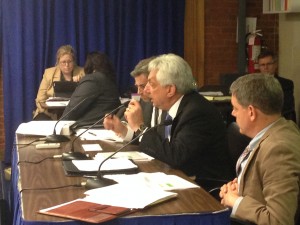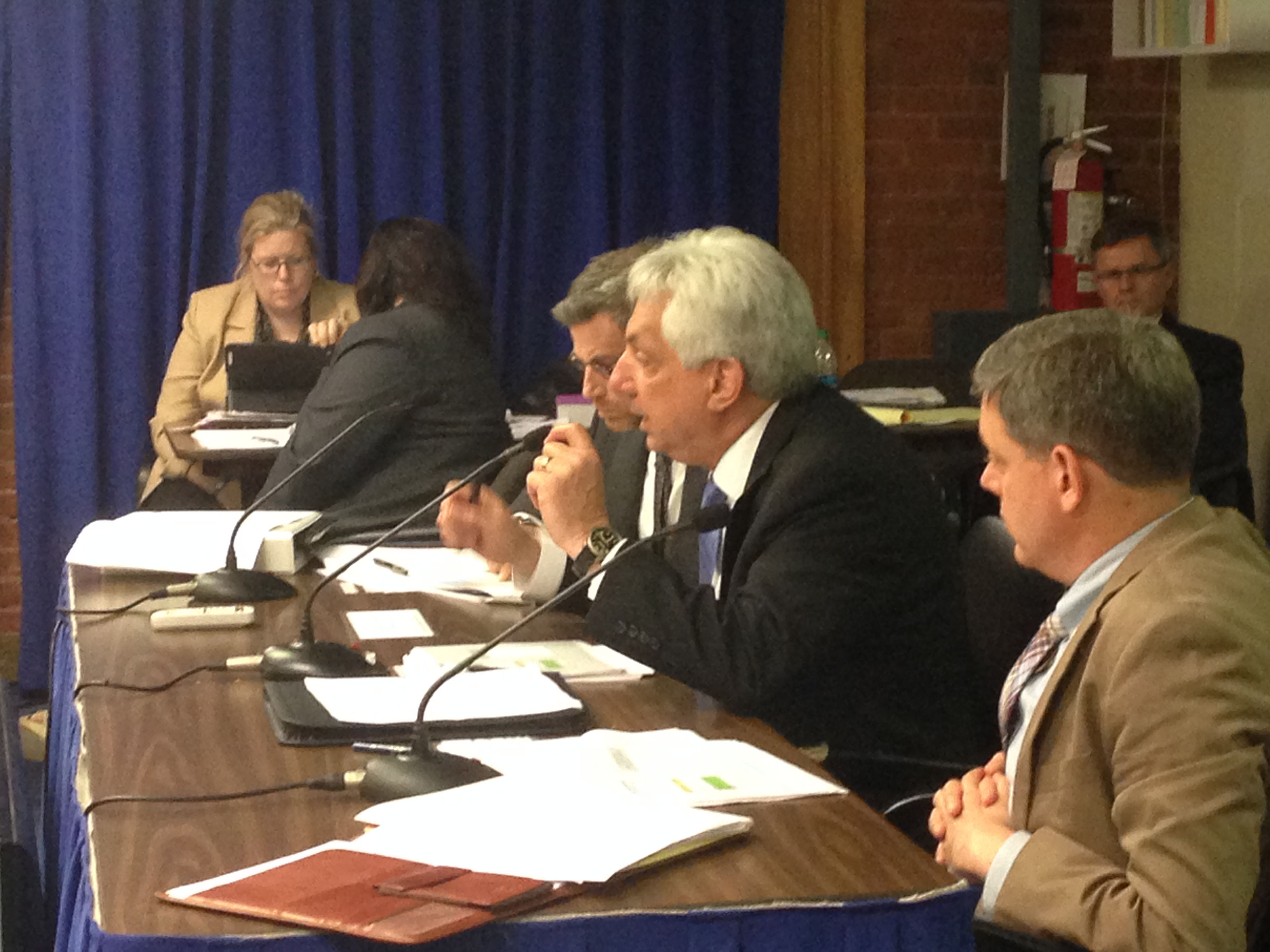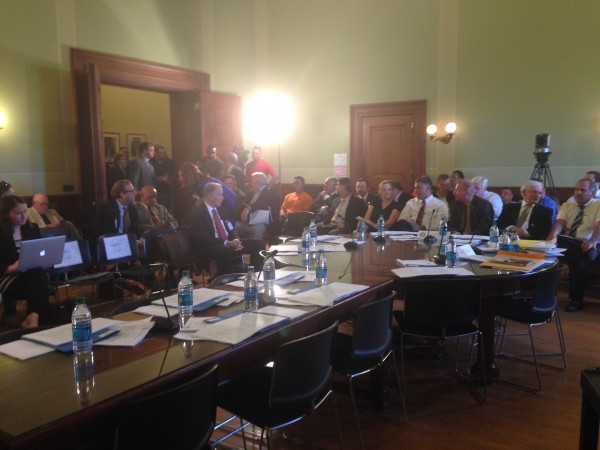The House Finance Committee took lengthy testimony from the Rhode Island Department of Transportation on Monday afternoon as the agency defended its Rhode Works program with renewed vigor. Representatives from RIDOT spoke for three hours, echoing many of sentiments they have previously made about the initiative, before answering many questions from representatives who remain unclear about what the state needs to give up to achieve what Rhode Works promises.
One of the biggest concerns for the committee was the success of the program, and whether or not RIDOT will actually be able to pay back the $500 million bond they are asking from the state, as well as make good use of the total $1.4 billion to fund the program. Representative Patricia Morgan (R- District 26) has been Rhode Works’ most vocal opponent, wondering why RIDOT cannot repair bridges with its existing funding.

Peter Alviti, the director of RIDOT, said the existing funding they have is not enough to sufficiently repair or reconstruct the 155 bridges that are structurally deficient.
The $500 million bond would pay the expenses for the 17 possible toll locations, leaving that money open for other locations.
“The rest of the money would then have adequate funds to not only reconstruct, but to operate and maintain the facilities,” he said.
Jonathan Wormer, director of the Office of Management and Budget, added that the borrowed money for the initiative would be used to keep bridges from becoming structurally deficient, because they would have the money up front to do so. The goal of the bond is to compress the time in which the bridges can be reconstructed.
“If you don’t fix them at the beginning, it costs them a lot more later,” Wormer said.
The revised version of the bill also contains $13.5 million worth in tax breaks and property rebates for truckers, as well as per day toll caps, which have raised questions about its legality. Some have expressed fear that the tax breaks would discourage interstate commerce, and violate the commerce clause in the United States Constitution. But, RIDOT has asserted that the breaks and tolls are legal.
After nearly three hours of questioning, the Rhode Island Trucking Association, which has opposed the bill from the beginning, brought in American Trucking Association Vice President Bob Pitcher to speak on their behalf.
“We object to the bill before you because of the means it would use to raise the money,” he said. “We believe the proposal would weaken Rhode Island’s economy unnecessarily.”
The biggest objection by Rhode Works opponents is that legislators are rushing into signing it in the last days of session, and possibly overlooking any flaws it might have.
“I’ve never seen anything so vague in a tax law. Tax laws normally say who pays what, and this one does not,” Pitcher continued, adding that Rhode Works is an unprecedented piece of legislation. “No other state has sought to toll multiple state highways or bridges. Because there is literally no experience in such tolling elsewhere, Rhode Island should be doubly cautious.”
In their calculations, RIDOT estimated a 25 percent diversion rate, or that 25 percent of truckers would avoid going through Rhode Island if they were to implement the tolls. Both Alviti and Wormer expressed that this number was very conservative, especially because the plan minimizes the chance for diversions. They also added that only about two percent of trucking companies’ budgets are spent on tolls. Pitcher believes that they have underestimated their diversion rate, in part because tolls don’t exist in large parts of the country.
Many other opponents came forward to testify against the bill, reiterating the worry that the bill has been moving through the State House too fast. In a press release, the Rhode Island Trucking Association called upon Governor Gina Raimondo to create a committee to investigate the bill, rather than push it through at the last minute.
“This process is moving entirely too fast and there have been no discussions or analysis on the fiscal impact of the proposed toll plan to the trucking industry or the business community,” said RITA President Christopher Maxwell.
Other groups have shown support for Rhode Works, including AAA Northeast, The Sierra Club, Grow Smart RI, and Building America’s Future, a national, bipartisan group of elected officials dedicated to infrastructure improvement.
No vote was taken on Monday, but a vote on a version of the bill expected in Senate Finance on Tuesday.


